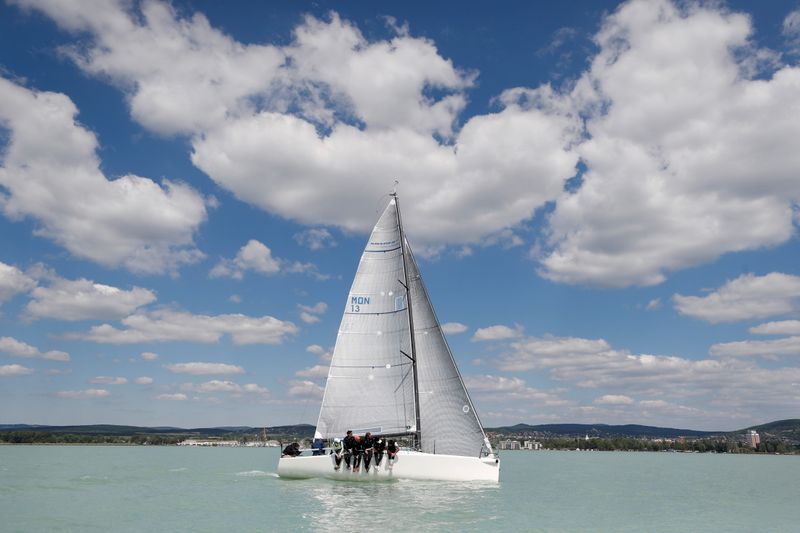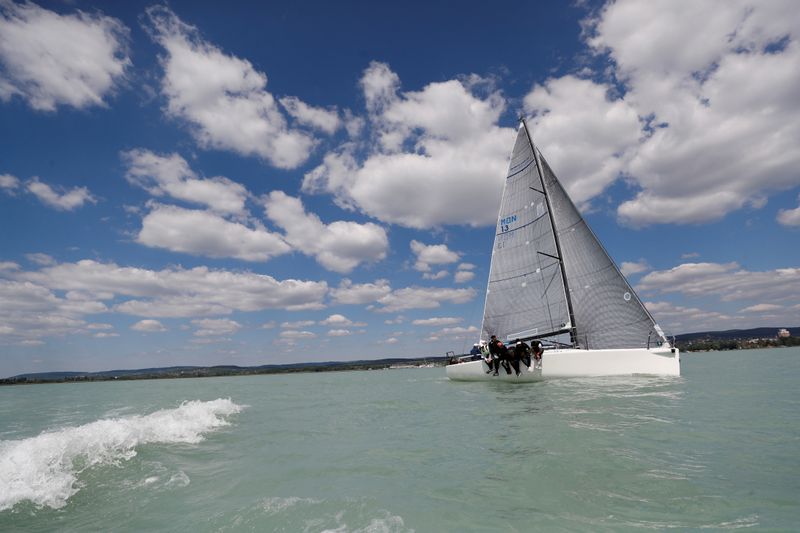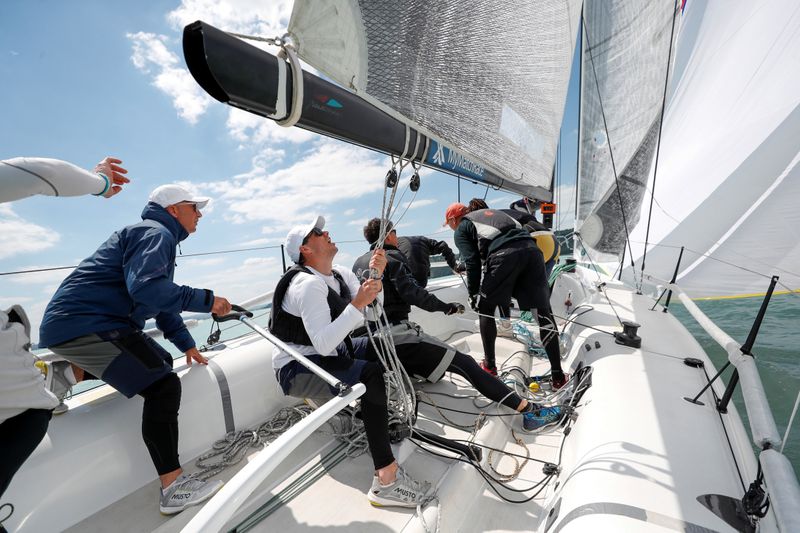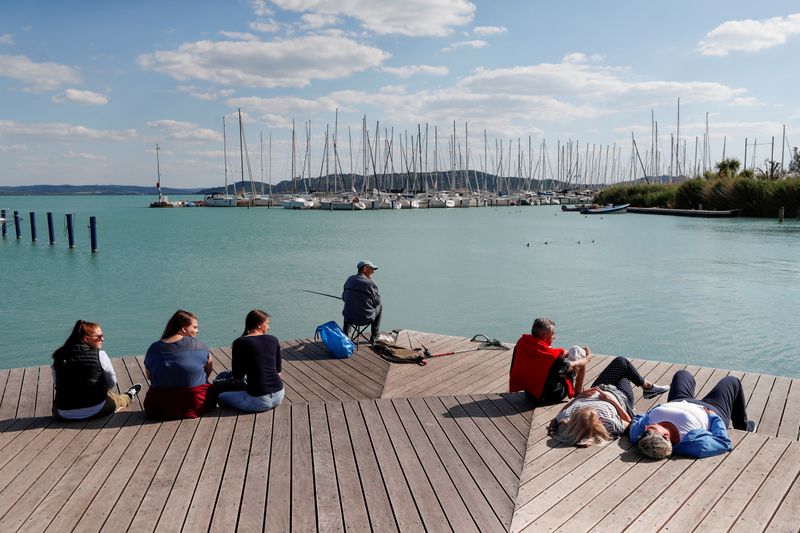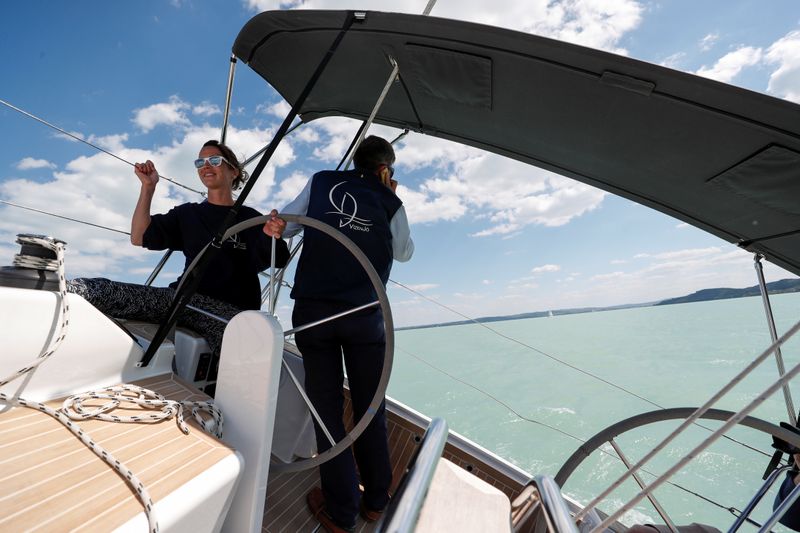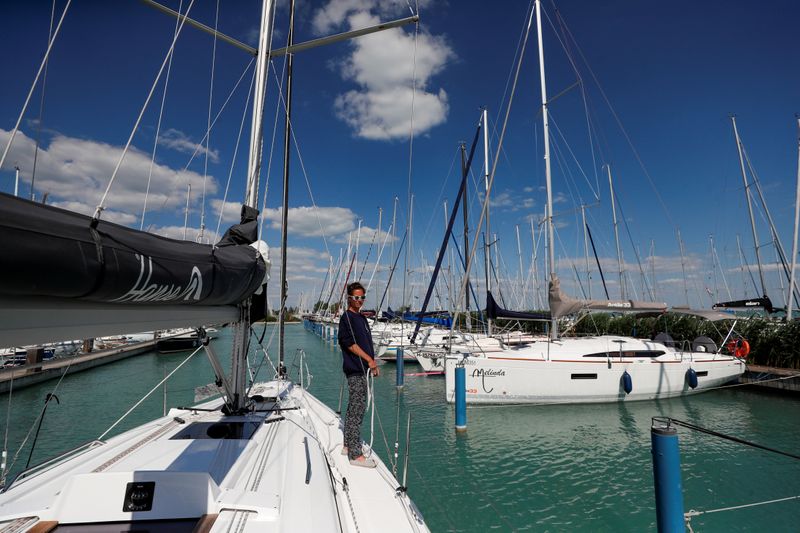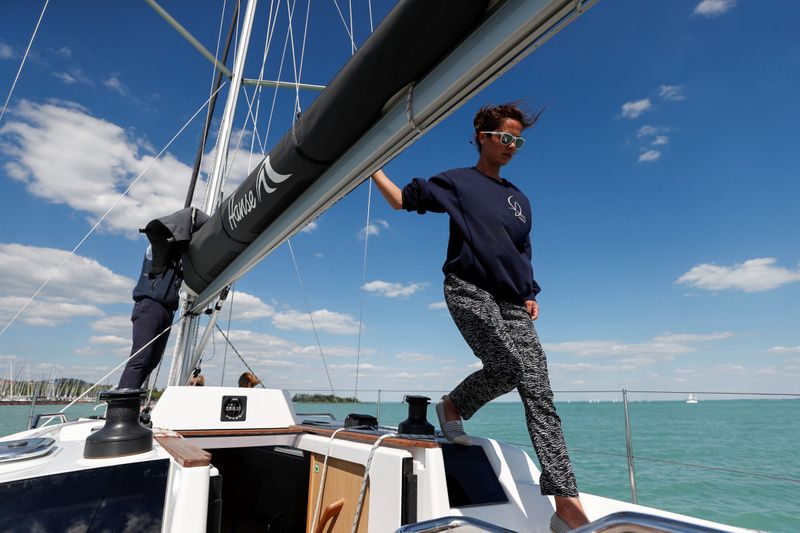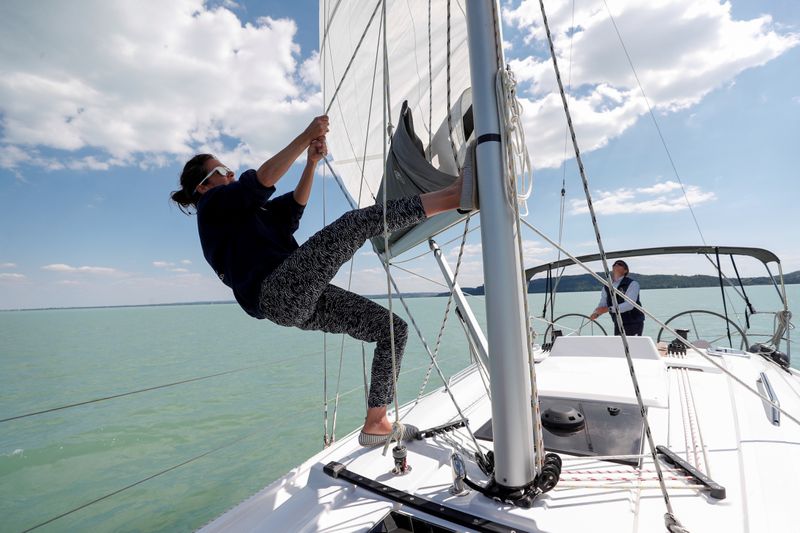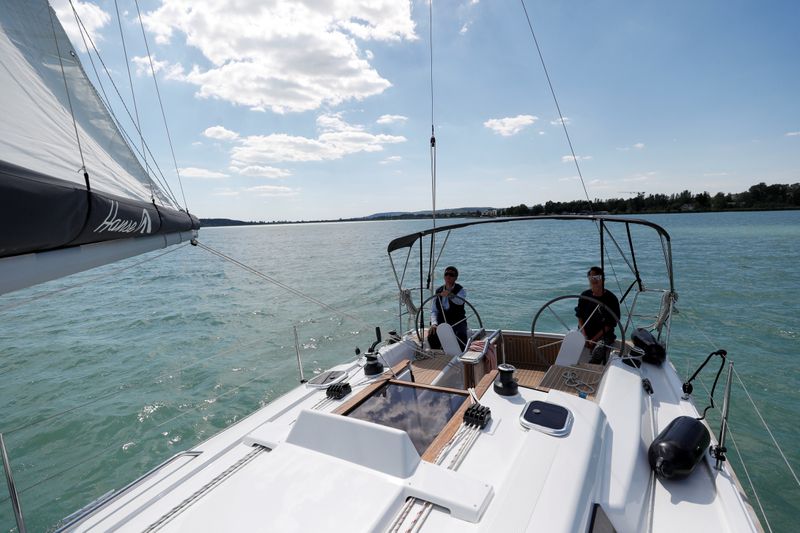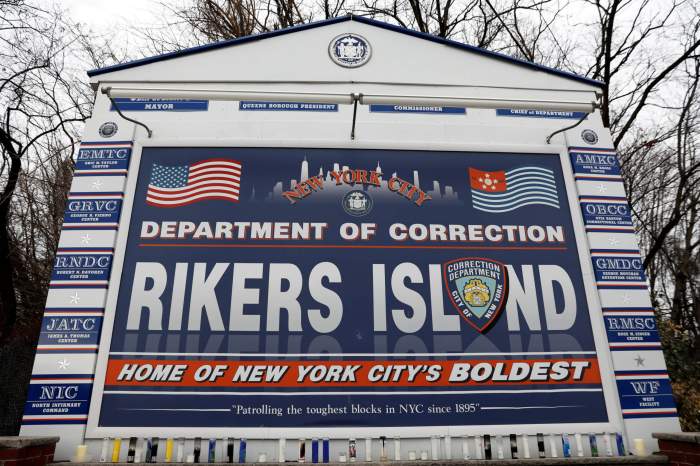BALATONFURED, Hungary (Reuters) – Released from lockdown three weeks ago, Hungarians are making day trips to the blue waters of Lake Balaton, raising hopes that tourism may recover sooner than expected from the damage caused by the coronavirus pandemic.
As an antidote to cabin fever that also allows for social distancing, many groups and families are chartering sailing boats. Since lockdown ended, the number of bookings for sailing yachts has surged, operators at the lake say.
“Demand (for renting a vessel) is now surely at least as strong as it was at the same time last year,” said Botond Elod, 35, whose company VizenJo manages a fleet of high-class charter sailing boats.
Travel abroad still limited as part of restrictions to curb the spread of the new coronavirus and Hungarians are making the most of beauty spots and holiday destinations at home.
Valeria Giber, manager of Hajosprogramok, another sailing boat operator, said she also expected demand to match that of last year and that the summer season was already fully booked.
“There is a kind of explosion on our market now… From one day to the next after the announcement (of lockdown ending), inboxes filled up with booking requests.”
She hopes this surge will offset the revenue lost during lockdown in April and May. Gaps created by foreign tourists postponing or cancelling their reservations are being filled by domestic demand, Giber said.
Tourism accounts for around 10% of Hungary’s economic output and after Budapest, Lake Balaton is the top destination for visitors. The Hungarian economy is expected to shrink this year, but to rebound quickly in 2021. The country has recorded around 3,800 cases of the coronavirus, with 499 deaths.
In Poland’s northeastern Mazury region, home to more than 2,000 lakes, Malgorzata Jaromska, owner of the sailing boat rental firm Mjczarter, is seeing a similar trend.
“I get phone calls from old clients, whom I haven’t seen for a long time… They think that (aboard the yachts) they will have a better control over their safety,” she said.
(Additional reporting by Marcin Goclowski in Poland; Editing by Raissa Kasolowsky)

